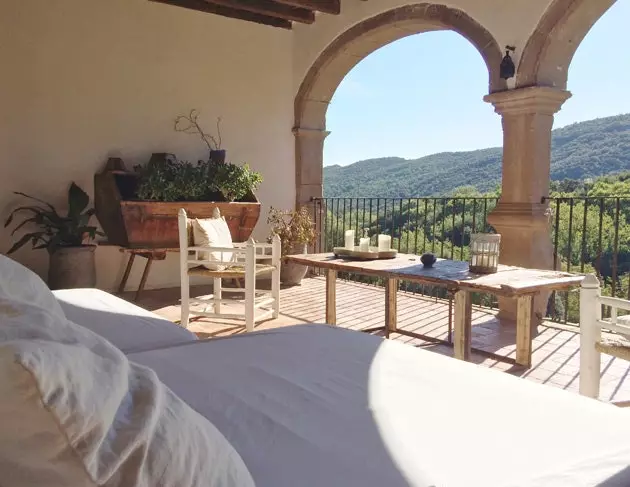
Mas Can Batlle
Mafalda said that "The urgent leaves no time for the important." Applying it to travel, this would be a: the races for the monuments that don't even interest us , they do not leave time to know why they are there, or who is behind them. The movement slow travel It comes to break with all this and offers us a new way of traveling that we like: that of blending in with destiny.
The movement slow It is not new, although in the last five years it has become a trend: slow food, slow cook, slow life, slow travel, slow hotels... The rush has fostered a new way of enjoying the pleasures of life far away of the American style that they have tried to impose on us in recent decades. Carlo Petrini already saw this coming in the late 1980s, when a new McDonald's opened in the Plaza de España in Rome. His indignation was such that he propelled a movement against standardized food , of fast consumption and that went against the values of Mediterranean gastronomy. Slow food was born with him, an association that is currently present in more than 150 countries and that advocates for local tradition, good food and knowing a place through the palate.
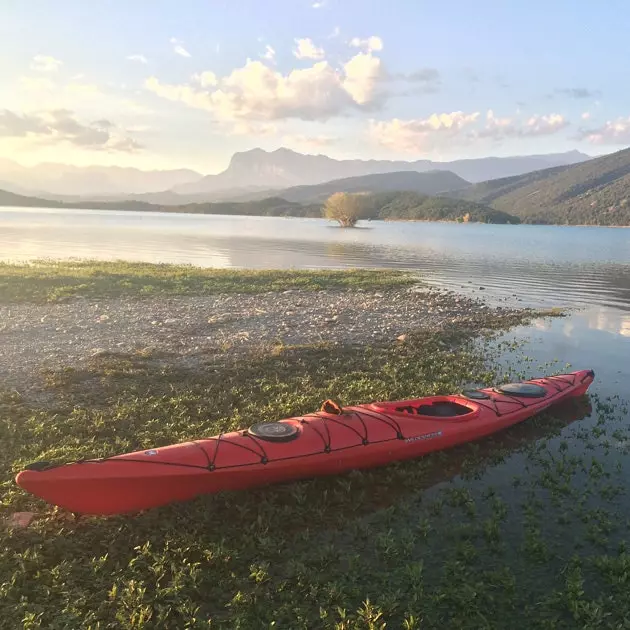
Mediano Reservoir (Huesca)
Slow travel is also based on this ideal, which decides to lift the movement of the table and take it to the rest of the components of a trip as opposed to mass tourism, vacation packages or express getaways. Because if the low cost have allowed us to reach all corners of the world, they have also done us a lot of damage: wanting to cover everything in two days. This holiday stress has meant that slow has been very well received in recent years . According to a study by the Rural Tourism Observatory, an initiative promoted by Escapada Rural, 45.3% of travelers make 2-3 trips a year, 74.6% in search of relaxation and disconnection , which has led to an increase in rural tourism and the proliferation of new tourist businesses focused on recovering the tradition and culture of the place, even in the big cities.
SLOW HOTELS: EXPERIENCES WITH HISTORY
There are no specific parameters that clarify what a slow hotel is, although the young Asturian entrepreneur David Carrizo is clear: “ They must be accommodations managed by their owners, related to the local community and that offer low-impact experiences for the environment and high value for travelers.
Contact is essential, either through events, gastronomy, or workshops at the hotel so that guests can interact with the culture of the place”. Characteristics that he found difficult to find in the luxury hotels for which he worked for six years and in which he stopped believing because "he did not find in them an honest relationship between the accommodation, the travelers and the environment". This is what led him to create ** Mi Paisano Slow Hotels **, a company that aims to bring together those hotels in Spain that allow them to know the culture of the place and provide them with an enriching experience for your day to day.
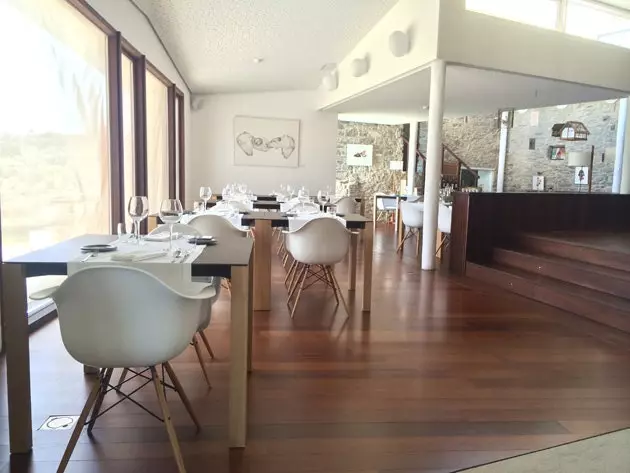
The Demba
According to Carrizo, to offer a quality service and that the treatment is like at home it is essential that the owners of the hotel work in it : “In this way, the establishment maintains a constant line. The fact that it is a restored building is also important, first because the historical heritage of the place is recovered Second, because it has a history that now continues with its new tenants and a special energy is generated between the house, the owner and the travellers”. Slow hotels are hotels that are not within the luxury sector but that, in turn, have a very careful decoration in keeping with the environment. We work with local, fresh and seasonal products cooked over low heat and served calmly.
In his short lifetime, Mi Paisano Slow Hotels already has 13 accommodations that meet these characteristics, most of them located in the north (Galicia, Asturias, Ávila, La Rioja, Huesca and Catalonia) and Menorca. “ My next search focuses on Extremadura and Andalusia ”.
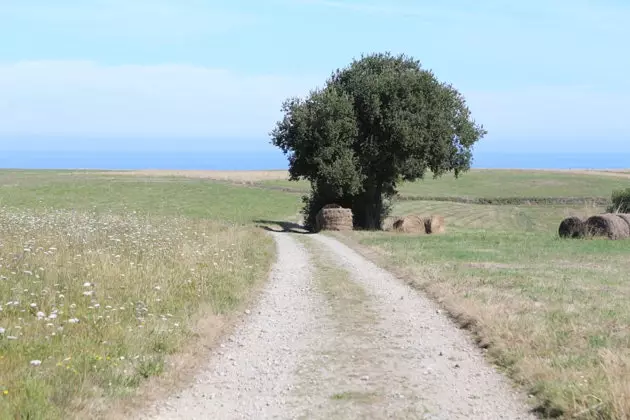
Asturian coastal plain
THE SPECIALIZATION OF RURAL TOURISM
Although the slow experience can also be lived in the city, the truth is that leisurely vacations where the environment takes on a great role has always been closely linked to rural tourism . With the slow travel movement, it has been influenced and has caused many small tenants to specialize.
As you tell us Miryam Tejada , from the communication department of Escapada Rural , "Some of the owners of the rural houses that our website hosts have opted for specific market niches and offer experiences such as yoga, meditation or ecological gastronomy ”. A specialization that, according to Tejada, still "has a long way to go, which is why we are working so that the owners become aware and adapt to the new demands that rural tourism requires."
According to the study facilitated by Rural Escape, in our country, the Autonomous Communities that receive the most tourism are Castilla y León (20.5%), Asturias (16.2%) and Castilla La Mancha (10.4%). As for the type of travellers, as David Carrizo and Miryam Tejada have told us, there is a bit of everything: couples looking for a special getaway, groups of friends who want a different kind of vacation, or middle-aged and older people traveling for enjoy the surroundings and relax.
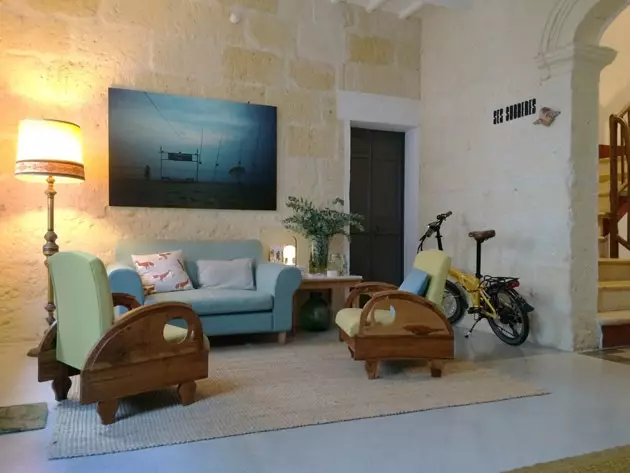
Slow hotels full of charm
THE SLOW CITIES
Although only those with about 50,000 inhabitants are recognized, the slow cities movement, also born in Italy in 1999, aims to distinguish those cities that resist homogenization and Americanization.
The idea, likewise, is to get the tourist out of the mass and the absurd gymkhana of monuments . Some of the requirements to be part of the network of slow cities are: promote the own and artisan product, have an environmental architecture, green and pedestrian areas, be non-polluting and use renewable energy , among others more than 50 points. In Spain, this movement has given rise to the creation of the Network of Municipalities for Quality of Life, founded in 2008 by five municipalities: Pals, Begur, Rubielos de Mora, Lekeitio and Mungia.
With these criteria, large cities would be left out of this concept, although Some of them, like Barcelona, have companies and services that promote this way of traveling. And it is that, whether or not you have the badge, slow travel is more of an attitude that all travelers should take towards destinations , emphasizing knowing the place, its people and its culture; just as the great travelers of history have done before. Let's stop collecting stamps and collect moments.
*** You may also be interested in...**
- Comfort food: simple cooking is coming
- Slow cities: calm tourism
- Born to cook: the new slow cook experience in Barcelona
- Hotels to lose yourself in the middle of nature
